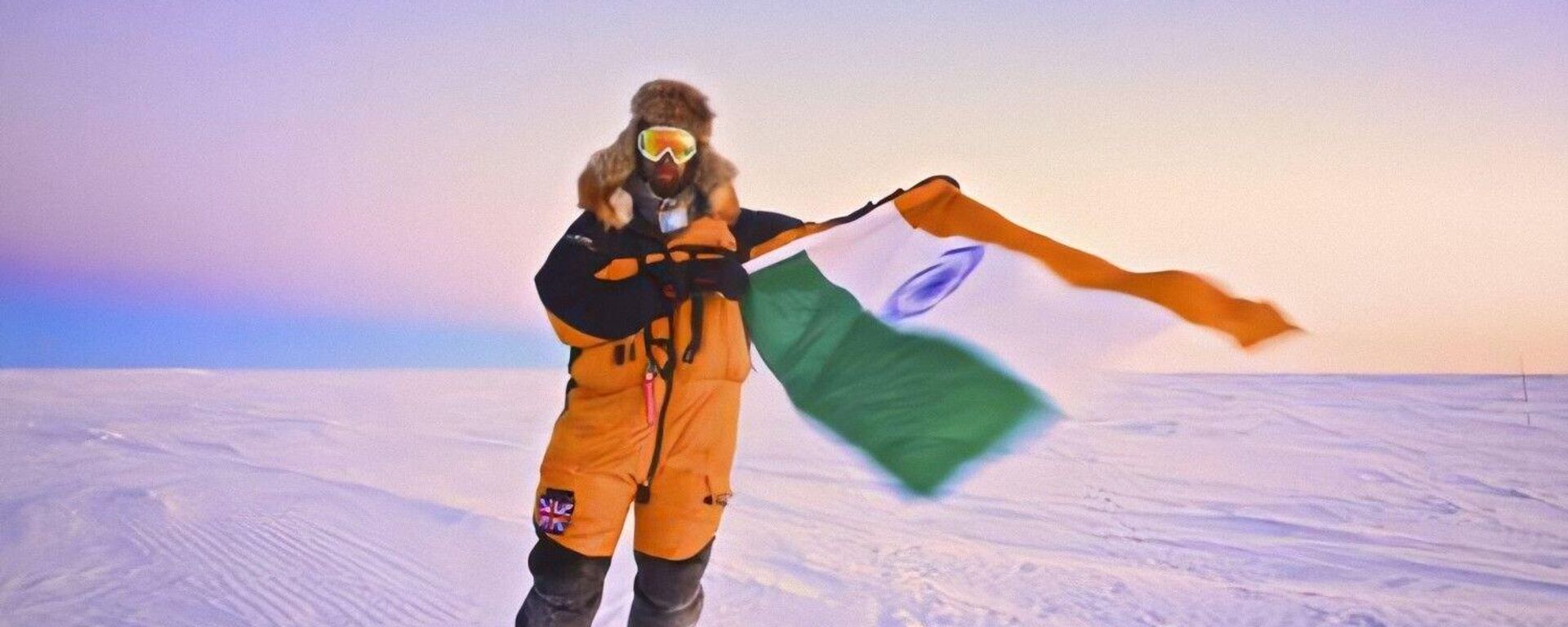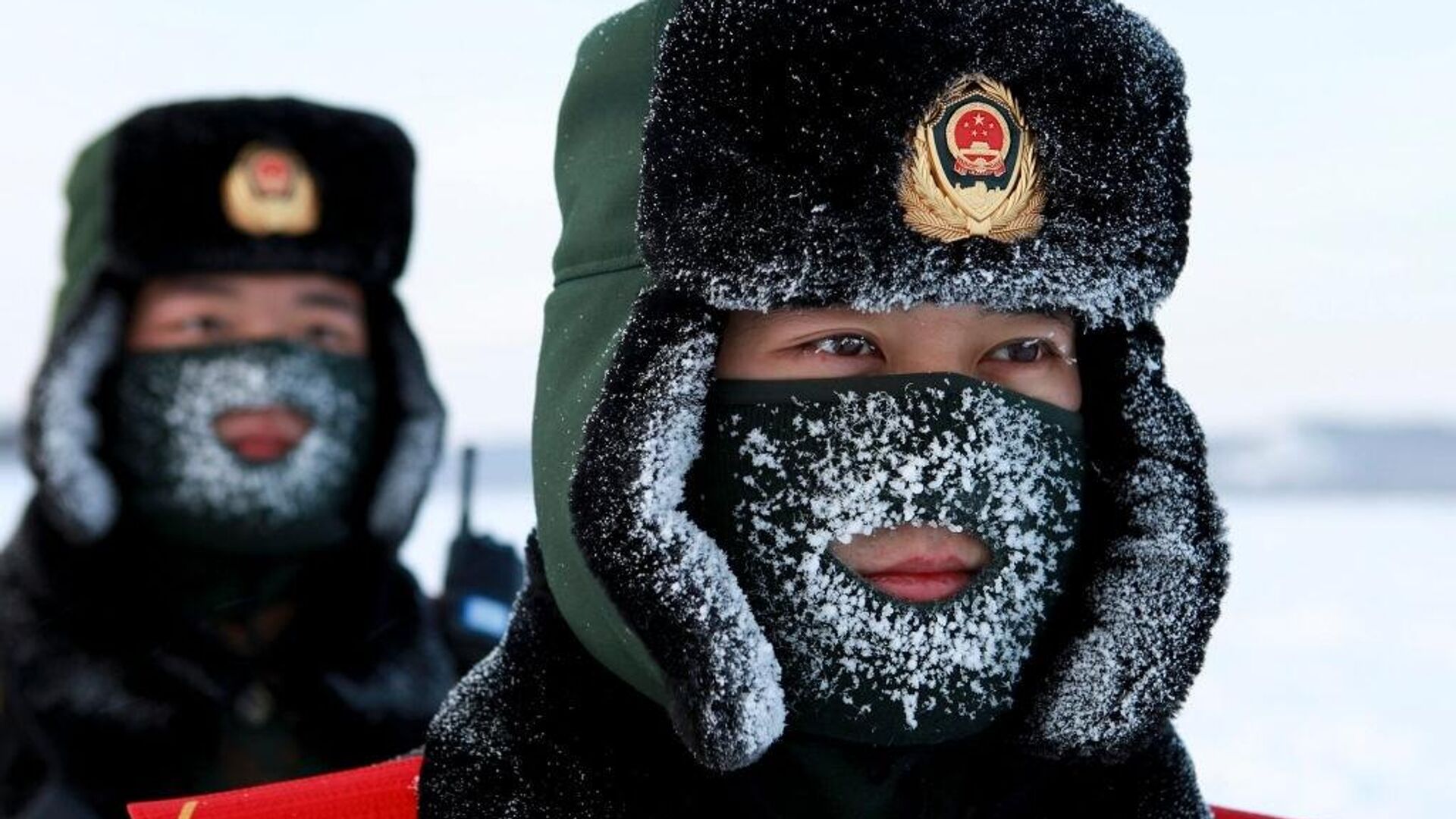https://sputnikglobe.com/20220908/india-welcomes-chinas-polar-silk-road-but-opposes-monopoly-in-the-arctic-expert-says-1100535221.html
India Welcomes China’s ‘Polar Silk Road’ But Opposes ‘Monopoly’ in the Arctic, Expert Says
India Welcomes China’s ‘Polar Silk Road’ But Opposes ‘Monopoly’ in the Arctic, Expert Says
Sputnik International
China has identified itself as a “near-Arctic state” and key stakeholder in the governance of the Arctic region, as per an official policy document from 2018... 08.09.2022, Sputnik International
2022-09-08T12:09+0000
2022-09-08T12:09+0000
2022-10-19T19:37+0000
eastern economic forum 2022
arctic
china
russia
arctic council
military expert
interviews
https://cdn1.img.sputnikglobe.com/img/07e6/09/08/1100540494_0:13:1024:589_1920x0_80_0_0_67fc387bdb77c51c8a4ce952bd964dd6.jpg
The "Polar Silk Road," which is also a part of the Belt and Road Initiative (BRI), seeks to facilitate “connectivity and sustainable economic and social development of the Arctic” region, as per a white paper released by China’s State Council Information Office.Major General (retired) B.K. Sharma, a leading Indian military expert and director of New Delhi-based think tank United Service Institution of India (USOI), says that New Delhi “welcomes” Beijing’s growing presence in the Arctic Ocean region as part of the "Polar Silk Route," but is against China establishing a “monopoly” in the region.Sharma, who is part of the Indian delegation at the Eastern Economic Forum (EEF) and was a speaker at two events related to the Arctic region — "The Global Impact of the Russian Arctic: Opportunities for South Asia" and the "Eastern Dimension of International Cooperation in the Arctic," shared with Sputnik his views on cooperation in the Arctic.The military veteran also mentioned that the "Polar Silk Road" shouldn’t turn into another “debt trap” for participating countries, as he referred to concerns expressed by several governments about the financial feasibility of the Belt and Road Initiative (BRI).The Indian think tanker said there should be “checks and balances” as far as Beijing’s participation in the region is concerned. Sharma further called for a “level-playing field” for all participants in the region.The economic, environmental, and other affairs in the Arctic region are governed by the Arctic Council, which is currently headed by Russia under a rotating presidency. Canada, the US, Denmark, Finland, Iceland, Norway, and Sweden are the other permanent members of the Arctic Council. France, Germany, India, China, Japan, Italy, the Netherlands, Poland, South Korea, Spain, Switzerland, Singapore, and the United Kingdom are currently observer countries.There is a question mark over the future of cooperation in the Arctic Council after seven permanent members called for a boycott of the Russian presidency in March after Moscow launched a special military operation in Ukraine.Sharma said that it was important for the differences between Western states and Russia to be “resolved” before cooperation within the Arctic Council framework could resume.
https://sputnikglobe.com/20220901/india-must-take-both-russia--china-into-confidence-to-boost-arctic-presence-says-expert-1100255720.html
china
russia
Sputnik International
feedback@sputniknews.com
+74956456601
MIA „Rossiya Segodnya“
2022
Sputnik International
feedback@sputniknews.com
+74956456601
MIA „Rossiya Segodnya“
News
en_EN
Sputnik International
feedback@sputniknews.com
+74956456601
MIA „Rossiya Segodnya“
Sputnik International
feedback@sputniknews.com
+74956456601
MIA „Rossiya Segodnya“
arctic, china, russia, arctic council, military expert, interviews
arctic, china, russia, arctic council, military expert, interviews
India Welcomes China’s ‘Polar Silk Road’ But Opposes ‘Monopoly’ in the Arctic, Expert Says
12:09 GMT 08.09.2022 (Updated: 19:37 GMT 19.10.2022) Exclusive
China has identified itself as a “near-Arctic state” and key stakeholder in the governance of the Arctic region, as per an official policy document from 2018. India, on the other hand, launched its own “Arctic Policy” in March of this year in order to boost its presence in the resource-rich region, which is also critical to combat climate change.
The "Polar Silk Road," which is also a part of the Belt and Road Initiative (BRI), seeks to facilitate “connectivity and sustainable economic and social development of the Arctic” region, as per a
white paper released by China’s State Council Information Office.
Major General (retired) B.K. Sharma, a leading Indian military expert and director of New Delhi-based think tank United Service Institution of India (USOI), says that New Delhi “welcomes” Beijing’s growing presence in the Arctic Ocean region as part of the "Polar Silk Route," but is against China establishing a “monopoly” in the region.
Sharma, who is part of the
Indian delegation at the Eastern Economic Forum (EEF) and was a speaker at two events related to the Arctic region — "The Global Impact of the Russian Arctic: Opportunities for South Asia" and the "Eastern Dimension of International Cooperation in the Arctic," shared with Sputnik his views on cooperation in the Arctic.
“China is [a] very big country and [has the capacity for] real work in [the Arctic]. And we welcome the Polar Silk Route and other things,” Sharma told Sputnik on the sidelines of the EEF in Vladivostok, a Pacific port city in Russia. “We believe that cooperation in a win-win situation is good. But it should not be a monopoly.”
The military veteran also mentioned that the "Polar Silk Road" shouldn’t turn into another “debt trap” for participating countries, as he referred to concerns expressed by several governments about the financial feasibility of the Belt and Road Initiative (BRI).
“We’ve seen the example of the [BRI], where they were not transparent in what they were doing. And many of the countries were led into the debt trap,” Sharma argued.
The Indian think tanker said there should be “checks and balances” as far as Beijing’s participation in the region is concerned. Sharma further called for a “level-playing field” for all participants in the region.

1 September 2022, 12:04 GMT
The economic, environmental, and other affairs in the Arctic region are governed by the Arctic Council, which is currently headed by Russia under a rotating presidency.
Canada, the US, Denmark, Finland, Iceland, Norway, and Sweden are the other permanent members of the Arctic Council. France, Germany, India, China, Japan, Italy, the Netherlands, Poland, South Korea, Spain, Switzerland, Singapore, and the United Kingdom are currently observer countries.
There is a question mark over the future of cooperation in the Arctic Council after seven permanent members called for a boycott of the Russian presidency in March after Moscow launched a special military operation in Ukraine.
Sharma said that it was important for the differences between Western states and Russia to be “resolved” before cooperation within the Arctic Council framework could resume.
“I think the Arctic Council in its present form is a clear dead-horse. So, there would be a lot of stubborn resistance from European countries to do anything that Russia would like to do,” the Indian think tanker reckoned.



